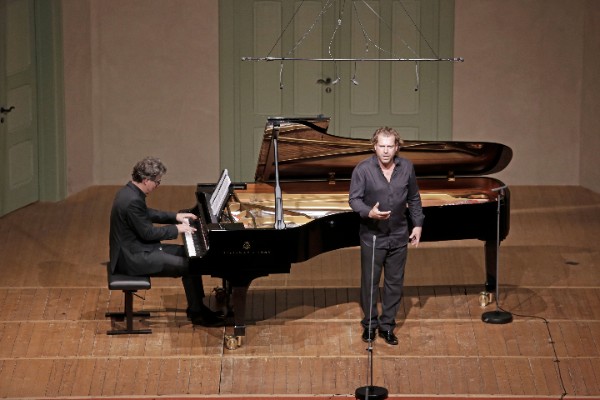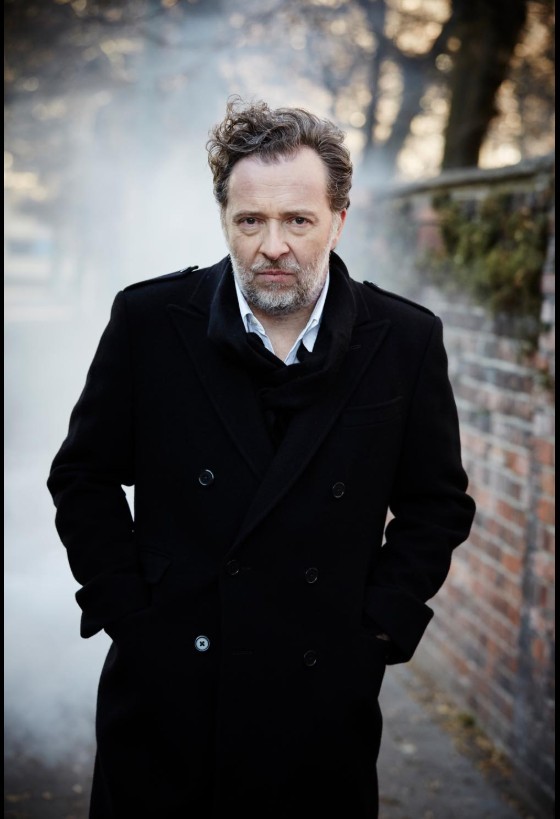Cassandra, the daughter of King Priam and Queen Hecuba of Troy, was a most unfortunate character in stories of the Trojan War. Granted the power of prophecy by the god Apollo if she would sleep with him, he tainted the gift when she refused – her prophecies would be true, but no one would believe her.
In Pablo Ortiz’ monodrama Cassandra, given on September 27-28-29 at the Greek National Opera, the character of Cassandra is moved to the modern day. Yet, the past, the present, and the future all play a role. Played by María Castillo de Lima, a transgender singer from the Teatro Colón Opera’s chorus, Cassandra commands the stage, changing history as we know it and predicting the future even while she knows she’s unable to change it.
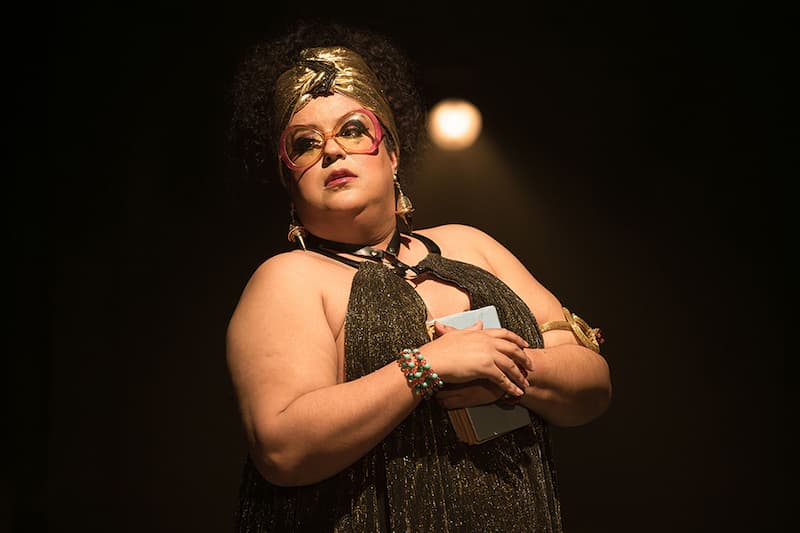
María Castillo de Lima as Cassandra, 2024 (photo by Lucia Rivero)
Lima’s own history as a drag queen fully informs her performance – there’s no misstep.
Pablo Ortiz: Cassandra | Greek National Opera
The music, by Pablo Ortiz, varies from electro-annoying (the opening sounds, while the audience was being seated, seemed to be non-ending cowbells) to delicately contrapuntal dialogues between the violin and the cello. The orchestra consists of 4 members of the Ergon Ensemble: the two string players, a bass clarinet, and a percussionist, assisted by Alexios Zervanos as electronics operator and coffee shop patron, both roles of which involve sitting in front of a computer (as you see in coffee shops around the world).
In the story, by Uruguayan playwright Sergio Blanco, Cassandra was born a boy and decides to be a girl to become the lover of her brother Hector. Her brother Paris goes to Sparta (she foresees the problems), kidnaps Helen, and the war starts. At the end of the war, she’s captured by Agamemnon, taken back to Argos with him as a sex slave. He has to return so that he can see his wife, Clytemnestra (who is, of course, not interested in that side of the marriage, according to him), and his children, Orestes and Electra (Cassandra, seeing the future, tells him this is a bad idea). Clytemnestra, after the 10-year absence of Agamemnon, has taken a lover, Aegisthus, and she kills Agamemnon and then Cassandra.
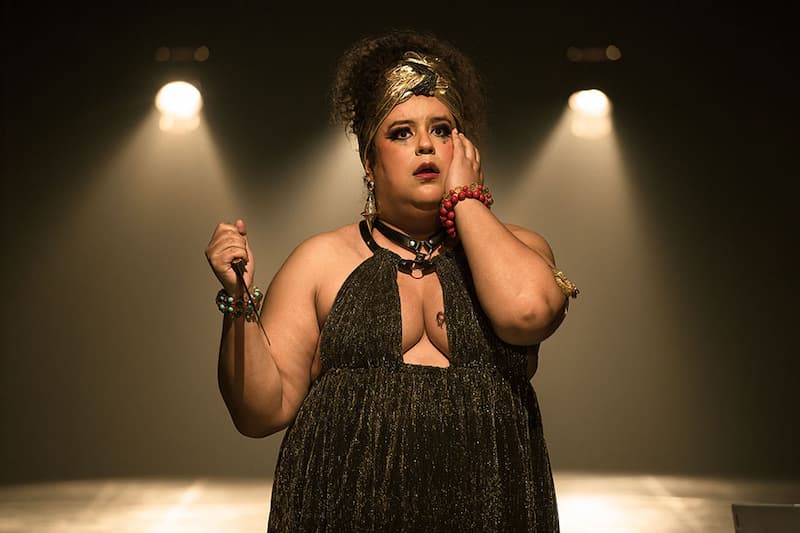
María Castillo de Lima as Cassandra describing her death at the hands of Clytemnestra, 2024 (photo by Lucia Rivero)
We meet Cassandra in a coffee shop, trying to raise money by selling cigarettes – ‘Marlborough, Marlborough…’ are her first words. Finding no one in the on-stage ensemble who will buy, she then tells her story in broken English. Everything is described in simplistic words: she’s sad, she cries, you’re funny, you’re her friend. Her world falls apart around her – Troy is destroyed, her family killed, and she’s sad. . She seems to sum up her life as ‘Cry, Cry, Cry–Why? Why? Why?’
Sex, sex, sex, rather than prophecy, is the centre of this modern Cassandra’s life, and so we have endless descriptions of Hector’s sexual needs morning, noon, and night. And in a terrible, inadvertently funny scene where she pulls dildo after dildo from her bottomless handbag, we hear about the large and powerful attributes of Agamemnon, details that are somehow missing from the usual Greek sources. The largest dildo, of course, represents Agamemnon. The tiny dildo she takes out from under her breast represents a character to be distained.
One wonders what one should make of this story. One of the great misunderstood women of the world now has her story taken over by a man – although breasts are a central feature of her costume, she emphasises that she still has her man equipment (the surgery is too expensive). Once that line is sung, her vocal range descends to tenor levels for the first time in the production.
Cassandra is shocked that no one believes her (welcome to most women’s experiences in the world), but in the end, she is resigned, almost forgetful about the problems she foresees in the future. The story is powerful but misdirected – sex isn’t the point of Cassandra’s mythological story, but it is certainly a topic of modern interest. Her real skill, prophecy, seems to be set aside as too difficult to deal with. She knows the future, knows that she will die, but ignores it, forgets it, thinking instead of her two heroes, Scarlett O’Hara (Tomorrow will be another day) and Bugs Bunny (who also appears at the end of the opera as one of the café’s silent customers), a future that we all share but that we also forget about so that we, like Cassandra, can go on living.
In a larger sense, we have to ask how transferable is this role? Could a soprano take on the role, assuring the audience of her past as a boy? Could a countertenor take on this role and convince us he’s a woman? This has certainly been done credibly in the Bayreuth Baroque Festival’s 2022 production of Vinci’s Allessandro nell’Indie where the entire cast, male and female roles alike, were taken by men as had been done in the original 1730 production in Rome.
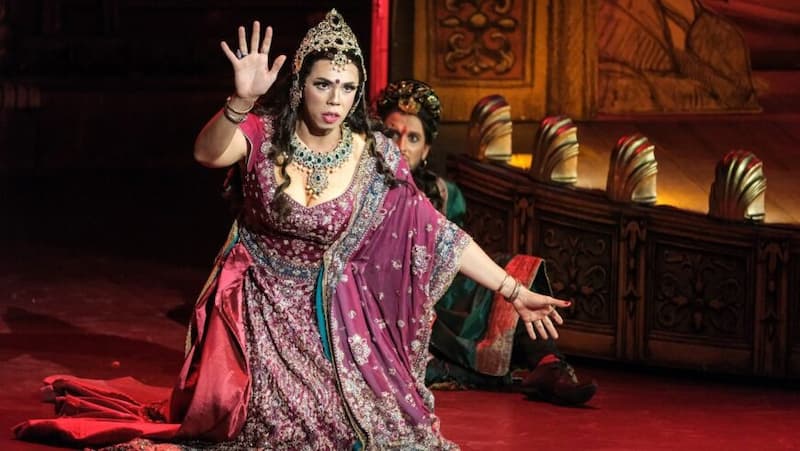
Cleofide (Bruno de Sa) and Gandarte (Stefan Sbonnik) in Alessandro nell’Indie, Bayreuth Baroque Opera Festival, 2022. (Photo © Bayreuth Baroque/Falk von Traubenberg)
It should be interesting to see how this monodrama / chamber opera takes its place in the world – it may be too vocal about the sexual freedom she enjoys with Hector and the sexual slavery with Agamemnon to play on some stages. It’s an amazingly strong role for a woman singer, we just regret that the story had to be changed so that she has her start in the world as a he.
For more of the best in classical music, sign up for our E-Newsletter

